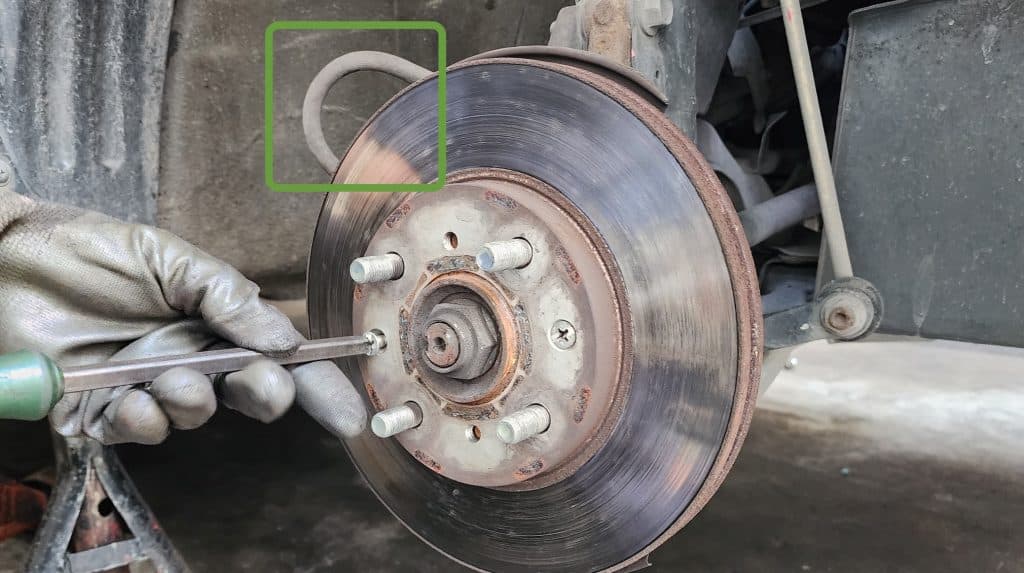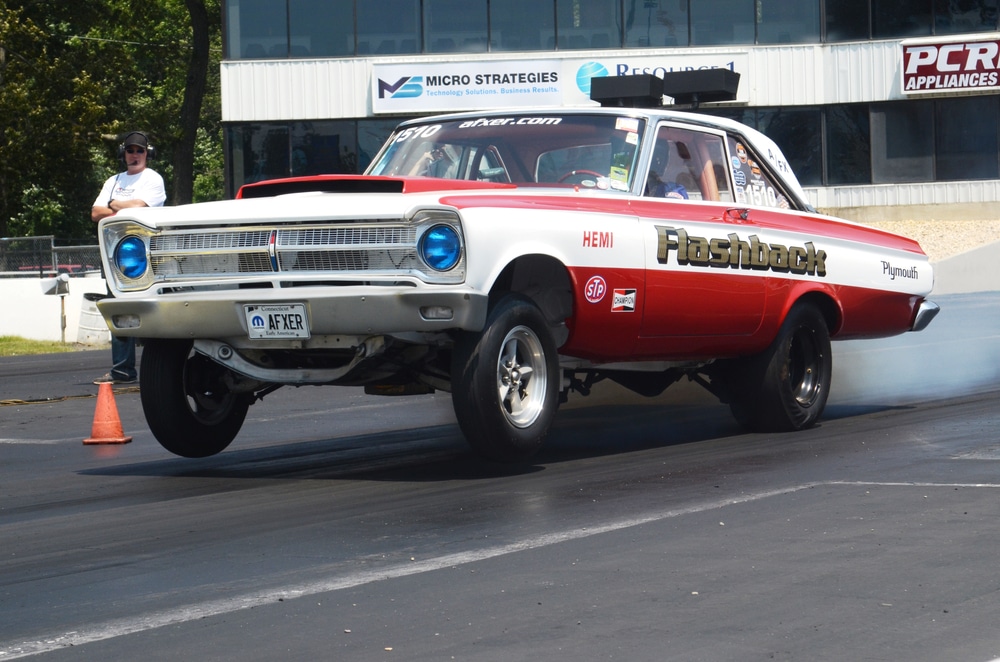Car Shakes When Slowing Down: Diagnosis Decision Tree

- Does the shaking occur only when braking?
- Yes → Go to step 2.
- No → Go to step 5.
- Is there a pulsing or vibration in the brake pedal?
- Yes → Possible Cause: Warped brake rotors.
- Solution: Have the brake rotors inspected and resurfaced or replaced if necessary.
- No → Go to step 3.
- Yes → Possible Cause: Warped brake rotors.
- Do the front wheels seem to shake more than the rear wheels?
- Yes → Possible Cause: Front brake rotors may be warped.
- Solution: Inspect front brake rotors and have them resurfaced or replaced.
- No → Go to step 4.
- Yes → Possible Cause: Front brake rotors may be warped.
- Are you noticing uneven tire wear or pulling to one side when braking?
- Yes → Possible Cause: Stuck brake caliper or worn suspension components.
- Solution: Check the brake calipers and suspension (control arms, bushings, etc.) for wear or damage.
- No → Possible Cause: General brake system issue (e.g., pads, rotors, or uneven wear).
- Solution: Have the entire brake system inspected by a mechanic.
- Yes → Possible Cause: Stuck brake caliper or worn suspension components.
- Does the shaking occur without pressing the brake pedal?
- Yes → Go to step 6.
- No → Check braking system as in previous steps.
- Does the car shake more at lower speeds?
- Yes → Possible Cause: Out-of-balance or damaged tires.
- Solution: Check tire balance and inspect for damage like bulges or uneven wear.
- No → Go to step 7.
- Yes → Possible Cause: Out-of-balance or damaged tires.
- Do you hear clunking or grinding noises along with the shaking?
- Yes → Possible Cause: Worn or damaged suspension components (e.g., tie rods, ball joints, wheel bearings).
- Solution: Inspect suspension components and replace as needed.
- No → Go to step 8.
- Yes → Possible Cause: Worn or damaged suspension components (e.g., tie rods, ball joints, wheel bearings).
- Does the shaking get worse at higher speeds or during acceleration?
- Yes → Possible Cause: Driveshaft or axle issues.
- Solution: Inspect driveshaft, axles, or CV joints for wear or damage.
- No → Go to step 9.
- Yes → Possible Cause: Driveshaft or axle issues.
- Does the car have high mileage?
- Yes → Possible Cause: General wear and tear on tires, suspension, or drivetrain components.
- Solution: Comprehensive inspection of tires, brakes, suspension, and drivetrain.
- No → Possible Cause: Check for tire balance and alignment issues.
- Yes → Possible Cause: General wear and tear on tires, suspension, or drivetrain components.
Is your car giving you the shakes when you slow down? Don’t worry, you’re not alone.
Many drivers experience this unsettling vibration, and it’s usually a sign that something needs attention under the hood or beneath your wheels.

The most common culprits for a shaky slowdown are warped brake rotors, worn brake pads, or uneven tire wear. These issues can turn your smooth ride into a wobbly mess faster than you can say “check engine light.”
But don’t fret just yet – identifying the problem is half the battle, and you’re already on your way to smoother stops.
Remember, your car’s not trying to dance – it’s trying to tell you something.
Whether it’s a gentle shimmy or a full-on shake, paying attention to when and how your car vibrates can help you pinpoint the issue.
So buckle up and get ready to become a car shake detective. Your wallet (and your passengers) will thank you for nipping this problem in the bud.
Key Takeaways
- Car shakes when slowing down often indicate brake or tire problems
- Vibrations can stem from various components including suspension and engine
- Prompt diagnosis and repair prevent more serious issues and ensure safety
Understanding Car Shakes and Vibrations
You’ve felt it before – that unsettling shimmy when you’re slowing down. Car shakes can be annoying and even a bit scary.
Let’s dig into why your ride might be doing the cha-cha and what’s causing all that commotion under the hood.
Common Causes of Car Shakes
Ever feel like your car is auditioning for a dance competition? The usual suspects behind those shakes are often hiding in plain sight. Worn brake rotors can make your ride jitter like it’s had too much coffee.
Unbalanced tires? They’re like that one friend who can’t keep rhythm – they’ll throw everything off.
And don’t get me started on wheel bearings. When they go bad, it’s like your wheels are trying to break free and start their own journey.
Sometimes it’s your suspension components waving the white flag. Shock absorbers and struts that have seen better days can make your car bounce like it’s on a trampoline.
The Dynamics of Vibration
Now, let’s talk physics – but don’t worry, I won’t make your head spin. When your car shakes, it’s basically throwing a tantrum because something’s out of whack.
Rotational forces are the big players here.
Imagine spinning a slightly bent ruler – that wobble you’d see is what’s happening with your wheels if they’re out of balance. The faster you go, the more pronounced it gets.
But here’s the kicker – sometimes the shakes are more noticeable when you’re crawling along.
That’s because at higher speeds, some vibrations can actually cancel each other out. So if you’re feeling the jitters at low speeds, it might be time to give your bearings a stern talking-to.
The Braking System’s Role in Vehicle Shaking

Your car’s braking system can be a sneaky culprit when it comes to those unsettling shakes as you slow down. Let’s dive into the nitty-gritty of how your trusty stoppers might be causing a ruckus.
Symptoms of Brake-Related Shakes
You’ll know your brakes are acting up when your steering wheel starts doing the cha-cha as you press the pedal.
If your car shakes when braking, especially at higher speeds, your rotors might be warped.
Another telltale sign? A pulsing brake pedal that feels like it’s trying to massage your foot. Not as relaxing as it sounds, trust me!
Worn brake pads can also join the party, causing a vibration that feels like you’re driving over a rumble strip. If you hear a squealing noise to boot, it’s time to give those pads some TLC.
Diagnosing Brake Component Issues
Let’s play detective with your brake system.
First up, check those rotors. If they’ve warped, they’ll cause your car to shimmy like it’s at a 50’s sock hop.
Next, eyeball your brake pads. If they’re thinner than your favorite pizza crust, they need replacing pronto.
Don’t forget about the calipers! These little guys can stick, causing uneven wear and that annoying shake. Give ’em a once-over to make sure they’re moving freely.
Lastly, take a peek at your wheel bearings. While not part of the brake system per se, a bad bearing can mimic brake-related shaking. It’s like the ultimate automotive impersonator!
Wheels and Tires: The First Line of Diagnosis

When your car starts shaking as you slow down, your wheels and tires are the first suspects. These round rubber buddies are your vehicle’s direct connection to the road, so it’s no wonder they’re often the culprits behind that annoying shimmy.
Unbalanced Tires and Alignment Issues
You know that feeling when you’re wearing a shoe with a pebble in it? That’s what your car feels like with unbalanced tires.
Unbalanced tires can cause vibrations, especially at higher speeds.
But don’t worry, a quick trip to your friendly neighborhood tire shop can fix that right up with some nifty wheel balancing.
Now, imagine trying to walk straight while looking sideways. That’s basically what your car does with bad wheel alignment. It’s like your tires are having an argument about which direction to go.
This misalignment can cause your steering wheel to shake and your car to pull to one side.
The Impact of Tire Wear and Damage
Ever tried running in shoes with holes? Not fun, right? Well, worn-out tires can cause your car to shake too.
Uneven tire wear is like having a bald spot on your head – it throws everything off balance.
Keep an eye out for bulges, cracks, or missing chunks in your tires. These aren’t beauty marks; they’re danger signs.
A damaged tire can cause vibrations and, in worst-case scenarios, blow out faster than a celebrity romance.
Don’t forget about tire pressure!
Under-inflated tires are like trying to run on soggy bread. They’ll cause your car to shake, especially when you’re slowing down.
So, check your tire pressure regularly. Your car (and your wallet) will thank you.
Suspension, Steering, and Drivetrain Concerns
When your car shakes while slowing down, it’s often due to issues with key components that keep you rolling smoothly. Let’s take a closer look at the usual suspects under your vehicle.
Suspension System and Steering Insights
Ever feel like you’re driving a bucking bronco? Your suspension might be throwing a fit.
Worn-out components in your suspension system can turn a relaxing drive into a rodeo.
Check those shocks and struts – they might be ready for retirement.
And don’t forget about the bushings and ball joints. When these wear out, they’ll make your car shimmy like it’s doing the cha-cha.
Steering components can also join this shaky dance party.
Loose tie rods or a worn steering rack can make your wheels wobble like a toddler learning to walk.
Pro tip: If your steering wheel feels like it’s trying to escape your hands, it’s time for a check-up.
Driveshaft and CV Joints Examination
Now, let’s talk about the unsung heroes of your drivetrain: the driveshaft and CV joints. These guys work hard to keep power flowing to your wheels.
A bent driveshaft is bad news. It’s like trying to run with one leg shorter than the other – you’ll definitely feel the shake.
CV joints are the flexible friends that help your driveshaft bend and flex. When they wear out, they’ll make more noise than your Uncle Bob at Thanksgiving dinner.
Don’t ignore those vibrations at low speeds. They could be your car’s way of saying, “Hey, my CV joints need some love!”
Remember, a healthy drivetrain is a happy drivetrain. Keep these parts in check, and you’ll be cruising smooth as butter on a hot skillet.
Engine Issues That Lead to Car Shakes
Ever feel like your car’s doing the cha-cha when you slow down? It might be time to peek under the hood, my friend. Your trusty engine could be the culprit behind those unwanted vibrations.
Let’s start with those unsung heroes: engine mounts. These rubber warriors keep your engine snug as a bug. But when they wear out, your engine starts dancing to its own beat.
You’ll feel it especially when slowing down or idling.
Next up, we’ve got the spark plug gang. These little firecrackers are crucial for smooth engine operation.
Bad spark plugs can cause misfires, making your car shake like it’s auditioning for a role in “Grease.”
Don’t forget about fuel injectors.
When they get clogged, your engine might start sputtering like an old lawn mower. It’s not a good look (or feel) for your ride.
And let’s not overlook timing belts. A worn-out belt can throw off your engine’s rhythm faster than you can say “disco inferno.”
Remember, your car’s not trying to invent a new dance craze. If it’s shaking when you slow down, it’s crying out for help. So, put on your detective hat and give that engine some TLC. Your smooth rides will thank you!
Frequently Asked Questions
Car shakes during braking can be unsettling and potentially dangerous. Let’s address some common concerns about this annoying issue that might have you gripping the steering wheel a bit tighter than usual.
What’s the deal with my car juddering when I press the brakes?
You’re not imagining things – that shaking sensation is real and shouldn’t be ignored.
Worn brake pads or warped rotors are often the culprits here. Think of it as your car’s way of desperately waving a red flag at you.
Is it bad news if my car vibrates only when I’m bringing the speed down?
It’s not great news, but don’t panic just yet. This could be a sign of uneven brake pad wear.
Your brake pads might be wearing their party hats at different angles, causing a vibration when they try to slow the party down.
Why does it feel like a roller coaster ride in my car when I hit the brakes at highway speeds?
Ah, the unexpected thrill ride! This shake-rattle-and-roll experience is often due to warped brake rotors.
It’s like trying to stop a wobbly wheel – not fun and definitely not safe.
Can transmission issues cause my vehicle to shake when I take my foot off the gas?
You bet your gearbox they can!
While not as common as brake issues, transmission problems can cause shaking when decelerating. It’s like your car’s got a bad case of the shivers – time for a transmission check-up.
Why does my car seem to have the jitters when I’m slowing to a stop?
Your car might be hitting the caffeine a bit hard!
Jokes aside, this could be due to sticking brake calipers.
It’s like your brakes are playing an uncoordinated game of stop-and-go.
Should I be concerned if there’s a whole lotta shaking going on when I brake from 60mph?
You should be more concerned if there isn’t any shaking when you brake from 60mph!
But yes, excessive vibration at high speeds is a red flag. It could be unbalanced tires or more serious brake issues.
Time to get your trusty mechanic on the case before your car decides to break dance on the highway.
